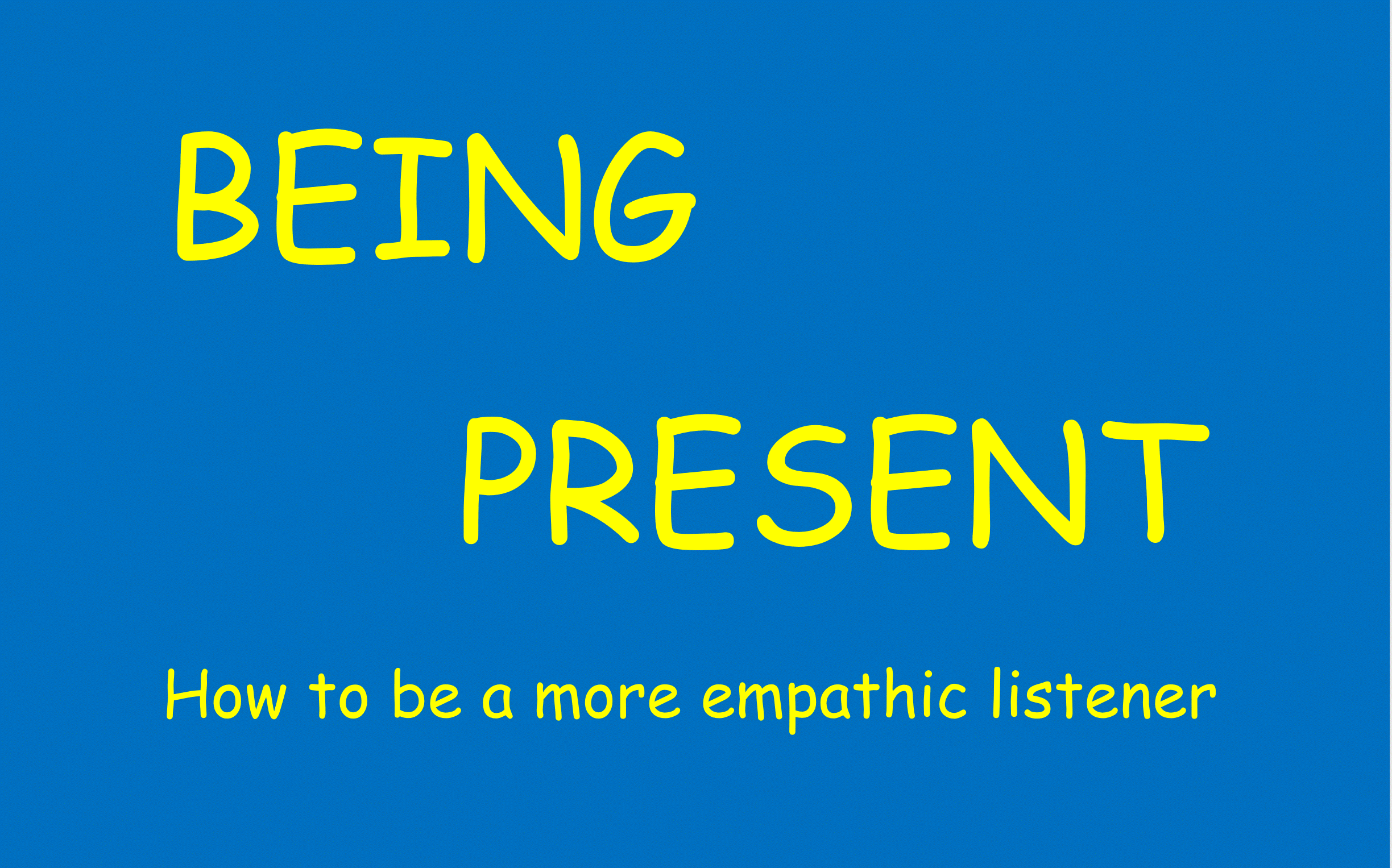
One of the most common problems reported by couples, (not feeling listened to or heard), can, with some practice, be fixed. Learning to pay attention and truly be present with one’s partner is crucial for good communication in any relationship. It is especially important in intimate ones. https://www.healthline.com/health/being-present
Being present is especially challenging when what a person is expressing is negative, angry, fearful or discouraged feelings. Rather than patiently listening, our natural inclination may be to change the subject, tune out or physically withdraw. That’s because listening to intense negative emotion can trigger stressful feelings within us which make it difficult to respond rationally.
Men may have an even more difficult time with empathy because of their natural tendency is to solve problems and provide solutions. While that might sound helpful, it often, isn’t. Offering premature solutions can be experienced as an interruption which stops the person from completing what they are trying to say.
Many communication difficulties stems from a fundamental confusion and oversimplification of why people talk to one another. Sometimes verbal communication is simple and direct. When you go to a bank and ask the teller for twenty dollars, the transaction is concrete. It doesn’t matter what either party is feeling as long as the teller correctly does what the customer asked.
Most human communications, however, are complex and take place on two levels: the concrete/literal level and the subtext/feeling level. What many couples don’t understand is that a connection on the feeling level must be made FIRST before moving to the concrete or literal meaning of the words.
Being there emotionally is what empathy and good communication is all about. For example, imagine a wife comes home from an appointment with a new hair dresser and asks her husband , “What do you think ?”
Although the sentence sounds like simple question, it isn’t. Any man who thinks that it is will have a serious problem on his hands. In fact, the meta-level/emotional level expressed by her facial expressions, body language and voice tone reveals that what she is asking for is not his opinion but reassurance that the new stylist did not butcher her hair. thttps://www.healthline.com/health/being-present
In order for the husband to respond in a helpful way, he needs to give her his full attention. Here are some tips to help you improve your empathy skills, assist you in being a better listener and be more fully present in conversations:
_________________________
THREE STEPS TO BEING PRESENT
1) FOCUS ON YOUR PARTNER / DON’T MULTI-TASK The first question to ask before begining a conversation, is “Am I able to shift attention from what I was doing to the person who wants to talk?” Just because someone wants to talk does not mean that you are obligated to engage immediately. If you are not in a good place to listen, it is better to negotiate another time to talk than to just go along without being present.
2) / MAKE EYE-CONTACT/ TOUCH Communicating your readiness to have a conversation takes more than just saying yes. Just as the person talking messages with non-verbal signals, so must the listener convey their attention with their own physical actions. The most important signal to indicate that you are focused exclusively on the one who is talking is eye-contact. Likewise, giving a reassuring touch is a good way to make an initial emotional connection.
3) LISTEN / UNDERSTAND THAT LESS IS MORE When the conversation begins, be aware of how the person’s words affect you. If they are upsetting, ask yourself, whether you are too distracted to listen calmly. you need to decide if you can calm yourself or if you need to stop the conversation and reschedule it.
If you can continue, be clear that your primary job is to listen and not problem-solve. Empathic listening involves more than understanding the meaning of the words. Being present includes connecting with what the person is feeling.
Likewise, it is important to realize that many problems about which people speak don’t have simple or even any answers. Being heard, understood, and cared about is what is being sought. You don’t have to come up with answers. Remember, when listening, doing less is more.
It’s almost a cliche but it is true that most relationship problems are the result of poor communications. (Since communications involves a speaker as well as a listener, another post will talk about how to be a better speaker.) Practicing a few basic skills can go a long way in helping you to be really present in intimate conversations.
Rev, Michael Heath, LMHC, Fellow AAPC 4 3 2023


